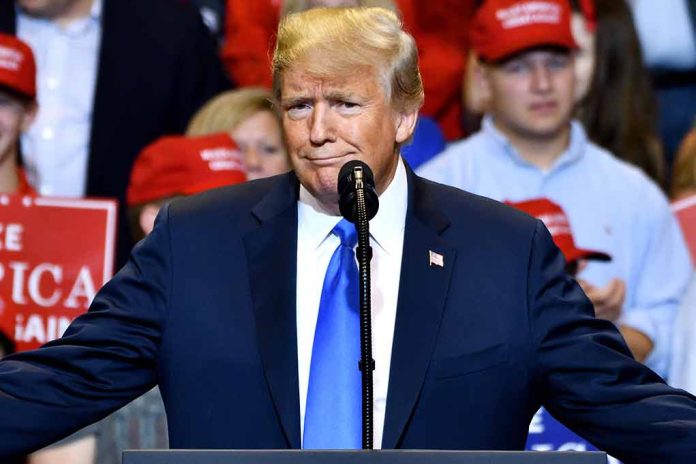
Adam McKay’s dissatisfaction with the Democratic Party amid Trump’s tumultuous presidency sets the stage for potential new alliances with smaller political entities.
At a Glance
- Adam McKay leaves the Democratic Party after Trump’s election.
- He considers joining the Green Party or Working Families Party.
- McKay criticizes Democrats for ineffective strategies and policies.
- His move reflects broader dissatisfaction among liberals.
Adam McKay’s Political Shift
Adam McKay, known for addressing critical social issues through films like “The Big Short,” has announced his departure from the Democratic Party. His decision comes in response to Donald Trump securing the presidency again. Expressing his disenchantment, McKay contemplates aligning with the Green Party or the Working Families Party. Driven by progressive ideals, he wants to remain committed to addressing climate change and other pressing issues through more impactful avenues.
The recent political climate highlights a widening ideological chasm, with public figures voicing their discontent. McKay’s decision mirrors this sentiment. Celebrities such as Christina Applegate and Ariana Grande have also publicly expressed their frustrations over the election results. This trend underscores a significant shift within the American political landscape, as more individuals explore alternatives outside the traditional two-party system.
Adam McKay is going scorched earth on the Democratic Party after Kamala Harris’ loss to Donald Trump in the presidential election. https://t.co/5xIy0J1SwC
— The A.V. Club (@TheAVClub) November 6, 2024
Criticism of the Democratic Party
McKay has been vocal about his discontent with the Democratic Party’s performance. His critiques are directed toward the party’s handling of various crucial issues, including Biden’s administration, healthcare reform, and Middle East policies. According to McKay, the Democratic leadership failed to connect with voters on substantive matters, focusing more on optics than tangible solutions. This misalignment, he argues, curtailed the party’s ability to secure widespread support.
“Who would have guessed lying about Biden’s cognitive health for 2 yrs, refusing to do an open convention for a new nominee, never mentioning public healthcare & embracing fracking, the Cheneys & a yr long slaughter of children in Gaza wouldn’t be a winning strategy?” – Adam McKay
His criticisms extend to electoral strategies, notably Kamala Harris’ campaign choices. For McKay, embracing political figures like Liz Cheney alienates core Democratic supporters. He emphasizes that Democrats lost significant voter support, especially among Arab-American communities disillusioned by the party’s Middle East policies.
The real way Trump wins is if we don’t abandon or take over the DNC.
It’s time for a real opposition party.
— Adam McKay (@ZombiePanther2) November 6, 2024
Implications for U.S. Politics
McKay’s departure signals a potential shift in U.S. politics. His blend of activism and filmmaking critiques highlights a desire for urgent action on climate change and social justice issues. By exploring alternative political affiliations, McKay advocates for a progressive leadership model capable of bridging the gap between the electorate and policy-makers.
“I really feel like all the change that’s going to lead to real action on climate—restoring institutions like our news, education, healthcare—the only road to it is a proper leftwing democratic socialist [leader]…without it, I really don’t see any road to change.” – Adam McKay
As the political discourse evolves, McKay’s statements underscore a broader frustration among progressive voters. His actions invite scrutiny into the Democratic Party’s future direction and present an opportunity for emerging parties to gain traction. Celebrities and voters alike must now contemplate new pathways to influence societal change beyond the constraints of the current political landscape.
Sources
1. McKay is among the many reacting to the Republicans’ total victory in the 2024 election.









